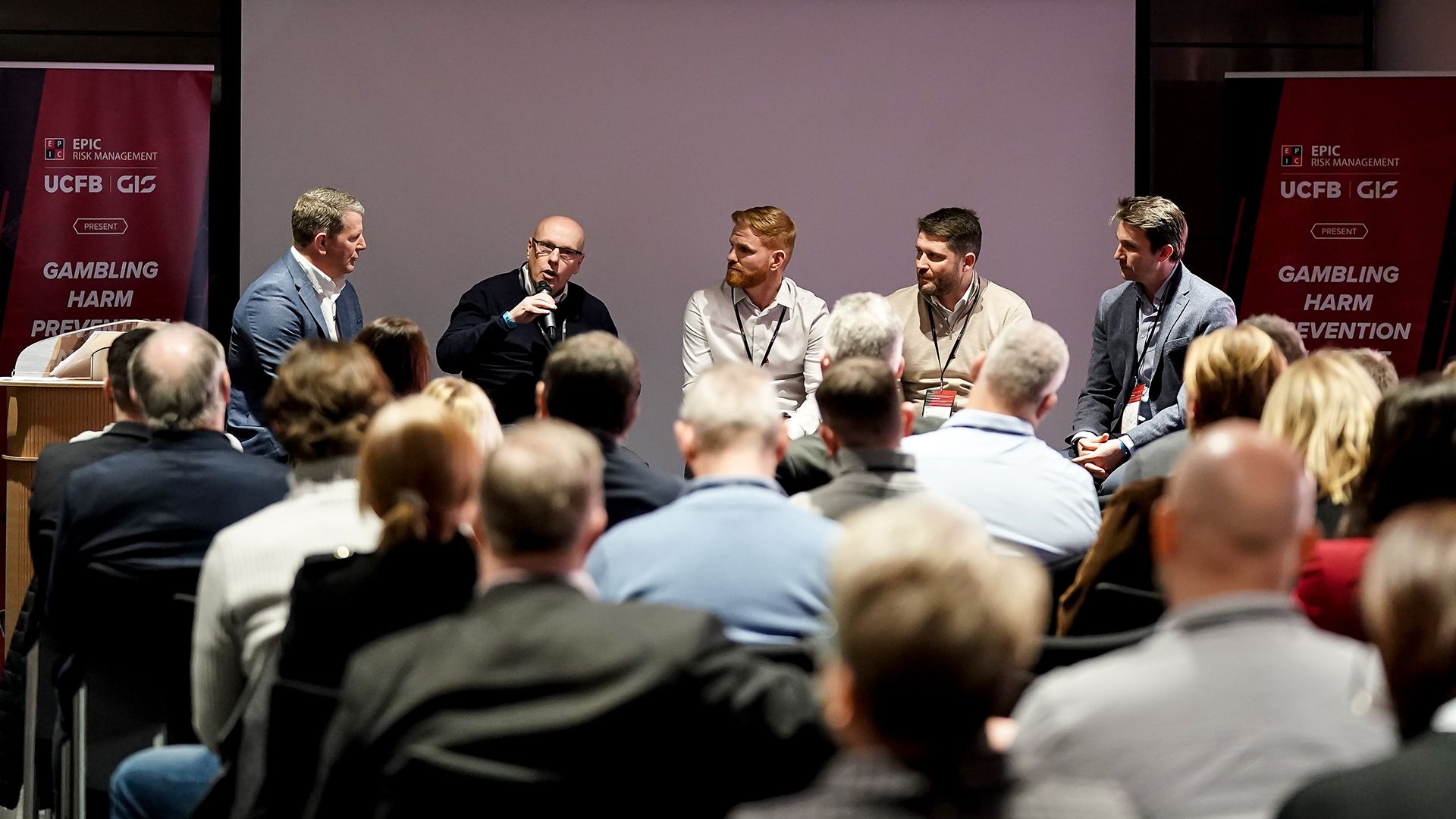Decision makers pack Wembley for EPIC’s powerful gambling harm prevention showcase

The subject of how to prevent gambling harm within the world of sport took centre stage at the iconic Wembley Stadium as EPIC Risk Management and UCFB’s Global Institute of Sport joined forces to present a powerful showcase event.
The Gambling Harm Prevention in Sport Summit saw around 100 senior executives and player welfare experts from the world of sport and senior figures from related services in attendance at the home of English football, where they were presented with the findings of EPIC Risk Management’s new white paper, driven by its Pro Sport Advisory Board, ‘Gambling Harm Prevention in Sport Review’.
Guest speakers and panellists helped to add weight to the series of recommendations within the white paper by sharing their insight with the audience in London, ranging from lived experience of gambling harm through to the difficulties of being an ‘affected other’, as well as presentations on how to best effect change in this area from doctors and player welfare specialists.
Notable contributions included ex-Premier League manager Brian McDermott opening up on his personal and observed experience of addiction in the dressing room, former Irish rugby union international Marcus Horan explaining the premise behind the Pro Sport Advisory Board’s research that drove the content of the white paper and acclaimed player welfare expert Dr Meg Popovic – renowned for her work in the ice hockey’s NHL – leading a breakout session on best practice in player protection.
The attendee list included some notable individuals and organisations, with leading governing bodies and clubs from football, rugby union, cricket and horse racing among those represented.
One of the most identifiable delegates in the room was Mike Riley, former Premier League and FIFA referee, now managing director of the elite match officials’ group, PGMOL. He spoke glowingly of the impact of the event and his hopes for his own organisation to benefit from future work with EPIC, explaining:
“It has been fascinating. One of the powerful things is that personal testimony of lived experience, and you saw the faces of people around the room when Scott [Davies, former EFL footballer who experienced problem gambling] was talking.
“It really made things come alive and you could understand that perspective. When you then go to socialise over drinks, people talk about it with enthusiasm, and they’re thinking ‘how in my world can I now go away and make a difference?’ and EPIC are right at the heart of that.
“Talking with EPIC and understanding how their expertise and experience could come in and educate a whole generation of match officials is a really powerful thing for us to do.”
Ben McGregor, director of sports partnerships at EPIC Risk Management, was a key figure in bringing the event together, and hoped that the collaboration seen in the build-up and on the day of the event will continue for positive effect.
“There are a lot of people to thank for bringing together this pioneering event,” he reflected.
“The Pro Sport Advisory Board have been instrumental in shaping this event and the white paper; we are very lucky to be working with them all.
“The courage that all the speakers and panellists with lived experience continually show, sharing their vulnerabilities to help other people is inspiring.
“UCFB’s Global Institute of Sport, with the help of Wembley Stadium, have been phenomenal partners and our host John-Paul Davies brought out the perspective of the event perfectly.
“We’d also like to say a big thank you to everyone who was in the room. In supporting today, we know you take the responsibility for those in your care seriously. You are here because you go over and above in striving to provide the best possible support for those around you. We hope that this event and the white paper provides further fuel to your fire and practical help for continuing to take proactive and positive action.
“We asked them to reflect on the day by posing two questions as they left; ‘What positive action can you take next?’ and ‘What support do you need?’.
“We want them all to know that they’re not alone in striving for positive change and we’re here to take this journey together. We hope that the event will prove to be the catalyst for real positive change around gambling harm prevention in sport.”
The ‘Gambling Harm Prevention in Sport Review’ white paper is available to read by clicking here (NB: please enter an email address – which will not be used for marketing purposes – in order to access the document).